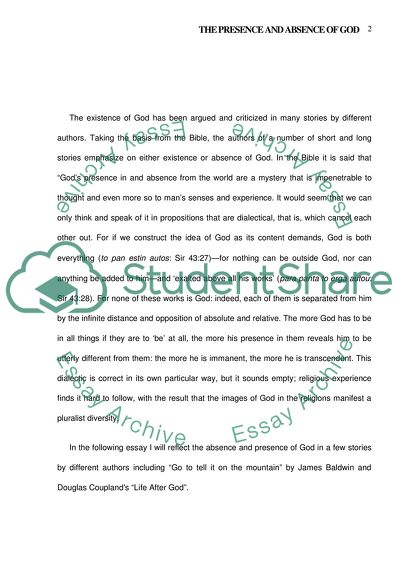Cite this document
(The Presence and Absence of God Coursework Example | Topics and Well Written Essays - 2000 words, n.d.)
The Presence and Absence of God Coursework Example | Topics and Well Written Essays - 2000 words. Retrieved from https://studentshare.org/religion-and-theology/1710662-religion-and-imagination
The Presence and Absence of God Coursework Example | Topics and Well Written Essays - 2000 words. Retrieved from https://studentshare.org/religion-and-theology/1710662-religion-and-imagination
(The Presence and Absence of God Coursework Example | Topics and Well Written Essays - 2000 Words)
The Presence and Absence of God Coursework Example | Topics and Well Written Essays - 2000 Words. https://studentshare.org/religion-and-theology/1710662-religion-and-imagination.
The Presence and Absence of God Coursework Example | Topics and Well Written Essays - 2000 Words. https://studentshare.org/religion-and-theology/1710662-religion-and-imagination.
“The Presence and Absence of God Coursework Example | Topics and Well Written Essays - 2000 Words”. https://studentshare.org/religion-and-theology/1710662-religion-and-imagination.


